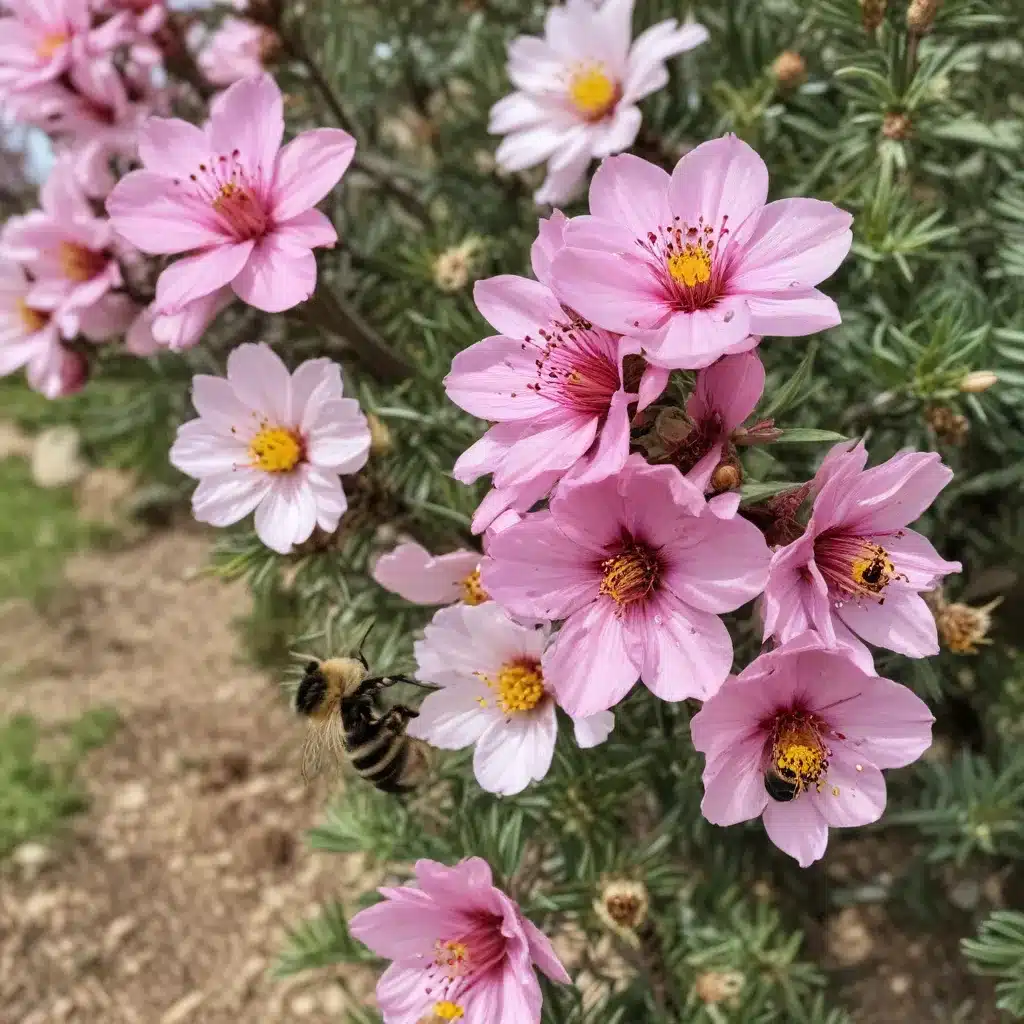
As the sun warms the earth and the birds begin to sing, Crooked Pines Farm comes alive with the vibrant colors and bustling activity of springtime. This time of year is a true delight for our family, as we witness the remarkable resurgence of nature all around us. From the delicate wildflowers emerging from the soil to the pollinators that eagerly flit from blossom to blossom, it’s a captivating display of life and renewal.
Thriving Flora and Fauna
The arrival of spring at the farm is marked by a flourishing of native and cultivated plant species. Our meadows and woodland edges burst with the cheery faces of daffodils, while delicate trilliums and bloodroots carpet the forest floors. Lilacs and redbuds adorn the landscape with their fragrant, vivid blooms, and the air is alive with the buzzing of countless bees and butterflies drawn to their nectar-rich flowers.
As we venture out on our nature trails, we delight in spotting the first hummingbirds of the season, their iridescent feathers catching the sunlight as they dart from blossom to blossom. The melodious songs of songbirds like the eastern bluebird and wood thrush fill the air, serenading us as we explore. It’s a true feast for the senses, and we relish the opportunity to connect with the abundant life that flourishes all around us.
Pollinator Interactions
Of course, no discussion of springtime at Crooked Pines would be complete without highlighting the vital role of our pollinator friends. These tireless workers are the unsung heroes of our farm, responsible for the lush fruit and vegetable harvests we enjoy each year. Whether it’s the industrious honey bees carefully gathering pollen and nectar or the delicate butterflies fluttering from bloom to bloom, these creatures are essential to the health and productivity of our agroecosystem.
We make it a point to foster a welcoming environment for our pollinator partners, planting a diverse array of nectar-rich flowers and herbs that provide them with a bountiful food source throughout the growing season. By observing their intricate interactions with our crops, we gain a deeper appreciation for the interdependence between plants and pollinators – a relationship that is truly the bedrock of a thriving, sustainable farm.
Diverse Blooming Plants
One of the joys of springtime at Crooked Pines is the opportunity to witness the explosion of vibrant flowering plants across our property. From the delicate pastel hues of our cherry blossoms to the bold, eye-catching blooms of our tulips and peonies, there is no shortage of natural beauty to behold.
Many of these plants also have practical applications, serving as both ornamental and edible components of our farm. Our herb garden, for instance, is a veritable tapestry of lavender, rosemary, and chamomile, not only pleasing to the eye but also providing us with the raw materials for our farm-to-table recipes and DIY crafts. Similarly, our vegetable patch is a riot of color, with rainbow chard, purple-podded peas, and striped beets adding visual interest alongside their nutritious bounty.
Of course, we also make sure to celebrate the remarkable native wildflowers that thrive in our meadows and woodland edges. These hardy, resilient plants not only add to the aesthetic appeal of our farm but also play a vital role in supporting the local ecosystem, providing essential food and shelter for a diverse array of wildlife.
Pollinator Populations
As stewards of the land, we take great pride in nurturing the vibrant pollinator populations that call Crooked Pines home. From the industrious honey bees that pollinate our fruit trees to the delicate butterflies that flutter among our flowering plants, these creatures are the lifeblood of our farm’s productivity and diversity.
We’ve dedicated significant effort to creating a pollinator-friendly environment, planting a variety of native wildflowers and nectar-rich annuals that provide a steady supply of food throughout the growing season. By ensuring a diverse array of bloom times, we can support a wide range of pollinator species, from early-emerging bumblebees to late-season monarch butterflies.
Our ongoing commitment to sustainable land management practices, such as reduced mowing and the avoidance of harmful pesticides, has also played a crucial role in fostering thriving pollinator populations.
Agroecosystem Harmony
At Crooked Pines Farm, we believe in cultivating a harmonious agroecosystem that supports the delicate balance of nature. By embracing sustainable farming practices and fostering biodiversity, we strive to create an environment that is not only productive but also resilient and ecologically vibrant.
One of the cornerstones of our approach is the symbiotic relationship between our crops and the pollinator species that visit our farm. By providing a diverse array of nectar-rich flowers and nesting habitats, we encourage these vital creatures to take up residence, ensuring the continued pollination of our fruits and vegetables. In turn, our pollinator-friendly practices help to sustain the overall ecosystem health, benefiting a wide range of other wildlife, from songbirds to small mammals.
Beyond the farm, we also actively engage with our local community, hosting educational workshops and family-friendly events that inspire others to adopt pollinator-friendly gardening practices. By sharing our knowledge and enthusiasm, we hope to cultivate a greater appreciation for the intricate web of life that sustains us all.
As the seasons continue to turn, we look forward to the continued resurgence of life at Crooked Pines Farm. From the vibrant blooms of spring to the bountiful harvests of summer and beyond, we remain in awe of the natural wonders that unfold before us each and every day. It is a privilege to be stewards of this land, and we are deeply grateful for the opportunity to share its beauty and abundance with our community.


